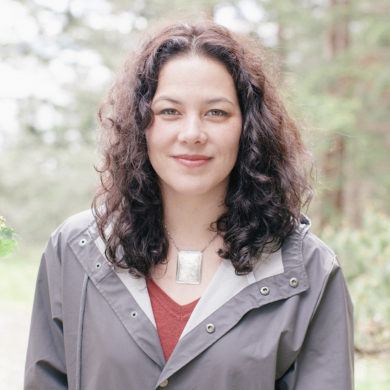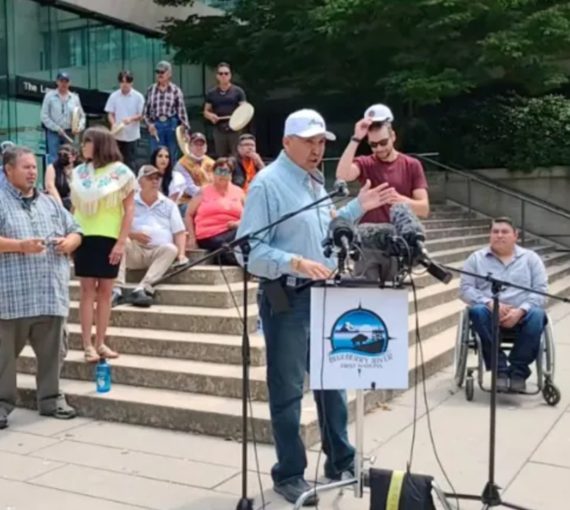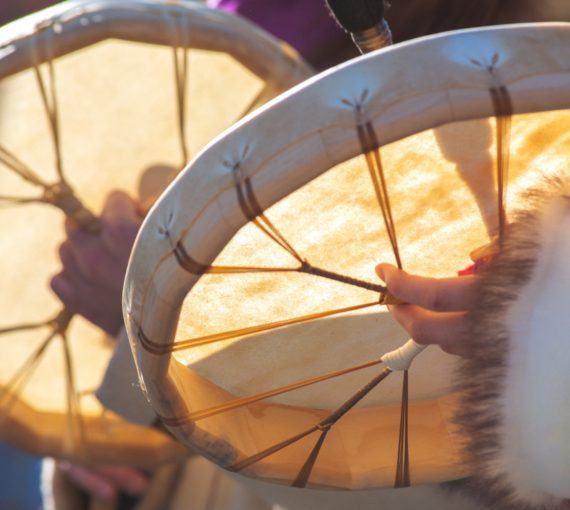
Ontario must quickly turn itself around if it wants to avoid the shame of leading in the wrong direction. It must stop mining to let the people of Grassy Narrows — and their land — heal. (Photo: Abdul Zreika via Unsplash)
Ontario is heading backward on the path to reconciliation with the granting of eight new mining permits in the traditional territory of Grassy Narrows without even consulting the nation or notifying the community.
The move flies in the face of a precedent-setting ruling by the British Columbia Supreme Court in June to uphold Blueberry River First Nation’s treaty rights over unilateral approvals for industry. Ontario must quickly turn itself around if it wants to avoid the shame of leading in the wrong direction. It must stop mining to let the people of Grassy Narrows — and their land — heal.
Blueberry River’s traditional territory in northern B.C. is extremely impacted by industry. As of 2018, more than 90 per cent of its land was within 500 metres of an industrial disturbance. This environmental degradation has severely affected the ability to hunt, trap, fish and gather food. The B.C. court ruling recognized that the land is now at — and arguably beyond — a tipping point, and upheld Blueberry River’s treaty rights over unilateral approvals for forestry, oil and gas, hydro and mining.
As with Blueberry River, Grassy Narrows’ treaty right to pursue a traditional way of life has been violated.
In Ontario, mercury in the fish continues to poison the people of Grassy Narrows. As of 2016, 90 per cent of the people tested had symptoms of mercury poisoning, the result of industrial and provincial negligence dating back to 1962. The province has yet to recognize a 2018 Land Declaration that banned all mineral staking, exploration and mining within Grassy Narrows’ traditional territory. Meanwhile, a surge in mining claims, including nearly 4,000 gold mining claims alone, continues to threaten Grassy Narrows lives, land and way of life.
As with Blueberry River, Grassy Narrows’ treaty right to pursue a traditional way of life has been violated. The people of Blueberry River have to go further afield to hunt — often with less success. In Grassy Narrows, the fish that people rely on for sustenance are toxic, and their once-fruitful fish-guiding enterprise is shut down. Grassy Narrows has launched sustained public awareness campaigns as well as costly legal battles to uphold their rights. But the province continues to disrespect their decision to protect their territory from industrial extraction.
Indigenous world views offer an alternative to extreme extraction practices that have come to be the Canadian norm, and a solution to our climate and biodiversity crises.
The B.C. court’s ruling is the first provincial ruling requiring free, prior and informed consent to be incorporated into large-scale decision-making processes in Indigenous traditional territories. It will not be the last.
With the unearthing of proof of Canada’s horrendous past of cultural genocide at residential schools, the need for a new way forward for Canada and Indigenous peoples is clearer than ever. At the same time, our global human society is struggling to address collapsing ecosystems and changing climate: the August Assessment Report from the Intergovernmental Panel on Climate made clear that the timelines for action grow shorter every day, with irreversible milestones already being missed.
First Nations have taken care of their lands and waters for millennia, and have a vested interest in maintaining healthy ecosystems to support their ways of life into the future. Indigenous world views offer an alternative to extreme extraction practices that have come to be the Canadian norm, and a solution to our climate and biodiversity crises.
The people of Grassy Narrows must have their own laws and decisions about caring for their lands respected.
After Blueberry River, more First Nations are preparing to follow suit and will not rest until a new framework for decision-making around extractive industrial activity and land protection is in place throughout these shared lands. The people of Grassy Narrows must have their own laws and decisions about caring for their lands respected.
We know that a new way for decision-making is needed in Canada. Now, we see that it’s possible. As Grassy Narrows embarks on yet another battle for survival, the Blueberry River ruling provides hope, inspiration and a clear way forward.
B.C. has begun to pave that path. It’s time for Ontario to follow.
This op-ed was originally published in The Toronto Star
Related stories
Our work
Always grounded in sound evidence, the David Suzuki Foundation empowers people to take action in their communities on the environmental challenges we collectively face.







